My brother Mikel and I founded our language school, ID Languages, in 2014 and we have designed and delivered experiential language programs in Ireland and Spain since. Our focus was always immersive language learning but, after the first few years, we realised that there was so much more to our work: we had built a beautiful international community where our students’ younger siblings, cousins and friends were visiting us on a yearly basis. They established close links with their host families and some of them also started working with us as group leaders. There were 8 nationalities and 12 languages in our team and we had welcomed students from 36 different countries! This was a very exciting prospect for us, but it was also a moment of realisation: Most of them traveled to us by plane.
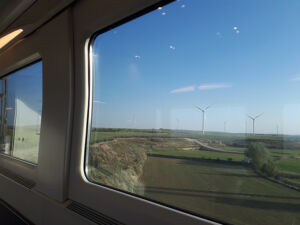 We had delivered sustainability programs from the start, implementing Zero Waste policies, and promoting sustainable living messages through our art, cookery and agricultural workshops. However, we had never looked closely at how we could balance out the carbon footprint from our visitors’ flights (and our own, as our team was travelling to networking events overseas quite often before pandemic). Now it was time to do the numbers.
We had delivered sustainability programs from the start, implementing Zero Waste policies, and promoting sustainable living messages through our art, cookery and agricultural workshops. However, we had never looked closely at how we could balance out the carbon footprint from our visitors’ flights (and our own, as our team was travelling to networking events overseas quite often before pandemic). Now it was time to do the numbers.
Our gap year education philosophy
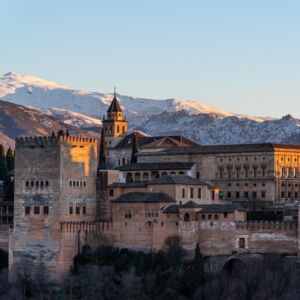
Collaboration and partnership are key. In our town in Donegal, four educational travel organisations that rarely worked together created a partnership, with the aim of minimising our students’ carbon and bringing sustainable projects into our community.
With our new gap year program, we intend to do the same in Spain. As the second lockdown was coming into effect in Ireland in 2020, I decided to go home to Spain and do a Master’s in Language Acquisition. While I was at home, I had a number of conversations with my partner, with whom I was just about to open a school in Spain right before Covid. The pandemic paused those plans, but we still wanted to deliver those programs in the near future. We want to offer a program that fosters cohesion, not a tour, but rather an opportunity to really get to know some of Spain’s regions at a deeper level. We want to give our gappers a chance to connect with the
locals, to understand their day-to-day and analyse stereotypes, learn about why our country is shaped the way it is, and observe what makes us different and what brings us together.
We decided to design a program that allowed for sustainable mobility but also for quality time in the one place. A travelling classroom, if you will, where our young adults have room for personal development combined with the support they can give and receive within a small group or team. I took advantage of the time I suddenly had and set out on a train journey around Spain, to visit our partners and start planning our new program. It took us 9 months, so you could call it our baby!
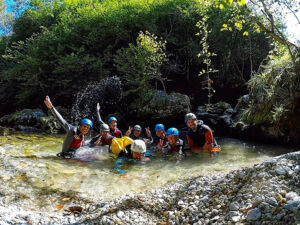 We have put together everything we have learnt in the last 8 years and brought it into the one program. We have had the chance to design a research-based curriculum aligned with the Common European Frame of Reference for language outcomes, and with UNESCO’s Sustainable Development Goals. We now have 8 years of experiential learning experience and strong connections with our partners, which has allowed us to build a program that will help our gappers explore and grow. Ultimately, we believe we can make the world better through education, and that is what we hope to do together.
We have put together everything we have learnt in the last 8 years and brought it into the one program. We have had the chance to design a research-based curriculum aligned with the Common European Frame of Reference for language outcomes, and with UNESCO’s Sustainable Development Goals. We now have 8 years of experiential learning experience and strong connections with our partners, which has allowed us to build a program that will help our gappers explore and grow. Ultimately, we believe we can make the world better through education, and that is what we hope to do together.
Student learning outcomes
I took a gap year in 2019, at the age of 29. It was the right time for me to pause work and take time away to reflect on what was working for me and what was not. To remind myself of what was important and what I enjoyed the most.
I learnt so much during my gap year: I lived in a campervan for half of it, which made me downsize on everything – I had to decide what things I needed and what things I didn’t need. I had to be very smart with water, as I only had a 70L tank and it wasn’t fun to run out of water with shampoo all over my hair (well, it was and it wasn’t). My electricity came from a solar panel and I only used earth-friendly personal hygiene and cleaning products. I got to travel through France, Switzerland, Italy and Spain, where I left my van with my mum before heading to Ireland for an acting gig.
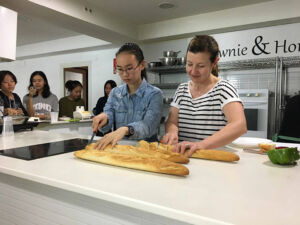
This all prepared me for the next phase of my trip: Panama, where I joined a travelling theatre crew on a tall ship. Our showers consisted of collecting rainwater in buckets and throwing cups of it over our heads, that we had previously pre-washed with eco-friendly soaps on the roof of the ship. Each of us cooked for a crew of 8 twice a week, which taught me how to be super efficient with my food shop, as we did not want to waste anything. We had to be creative too, some of the ingredients were very different from those we cook with in Europe.
My gap year was also a good reminder of how diverse the world and the people in it are and how much better we need to listen, in order to understand each other. Surprisingly, since I had already done a good bit of solo travel, it was also a challenge in terms of overcoming fears and difficulties that arose along the way: I felt the vertigo of being far from home, which I hadn’t felt in many years and I found myself adapting my plans as drastic changes came my way.
Based on my own experience as an older gapper and on the experiences of our younger students (listening to what they valued most, what their learnings were etc during our evaluation sessions), we envisage our gappers’ learning outcomes to be a mix of hard skills such as cooking varied healthy meals, logistics when planning our trips together, practical language skills to communicate with Spanish speakers, developing a true cultural awareness, a sense of empowered self & respect towards the smaller and wider community.
Language learning success stories
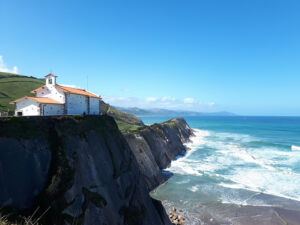
We have seen our students grow during their programs with us, both as humans and in their language skills, but this year, I guess due to the circumstances, has been the most remarkable one: despite the pandemic, we were able to welcome a few students in 2020-2021. They had to adapt to ever-changing restrictions, several lockdowns and all the mental health challenges that the pandemic brought their way. All while being away from home, their families and friends. Some of them came to Ireland with little to no English and, after completing our immersive high school programs, they returned to their home countries with excellent comprehension skills, great fluency and an Irish accent. Not only that, with the support of our team, they managed to stay well and healthy throughout a very difficult year.
The same can be said for those who came to Spain with us for summer programs: one of my students, who started learning Spanish online with me in September 2020 (she was a total beginner) was able to complete her program evaluation over the phone last week, in beautiful Spanish and has decided to go back to Spain in September for an immersive academic year – she will be staying with the same host family, which speaks highly of how welcoming our hosts are. During our evaluation, we reminisced about day two in Spain, when she told me she wanted to go home because she found it all too overwhelming. All part of the process, from fear when stepping out of our comfort zone, towards independent living and a crave to spending more time away, learning in the world.
Connect
There is only so much that we can learn from each other’s writing so if you are curious about our program or would like to start a conversation about anything gap year related, please do reach out, I would love to connect with you.
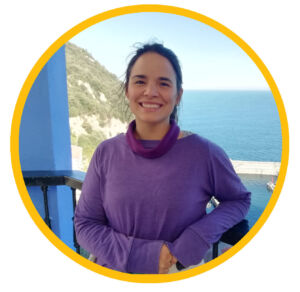 About the Author
About the Author
My name is Arantxa López and I am the director of the Spanish Gap Year program “Spain by train”. I am a Spanish teacher and hold a Degree in Education, a Diploma in Bilingualism and I’m currently completing an MA in Language Acquisition. I am also ELE and TEFL certified.
I come from Vitoria-Gasteiz, the capital of the Basque Country and one of my favorite places in the world (we have been Green Capital and Gastronomy capital of Europe, perhaps a sign of why I enjoy food so much and why we chose the most sustainable form of travel for your trip).
Categories
- Advising (7)
- Alumni (2)
- Career (4)
- College & University (15)
- Communication (17)
- DEIA (4)
- Fair Trade Learning (3)
- Finances (12)
- Gap Year Benefits (67)
- Growth & Development (6)
- Leadership (5)
- Learning & Reflection (54)
- Mental Health (4)
- Planning (59)
- Professional Development (4)
- Research (4)
- Risk Management (3)
- Safety (5)
- Service-Learning (10)
- Standards & Accreditation (1)
- Sustainability (6)
- Voices Project (20)
